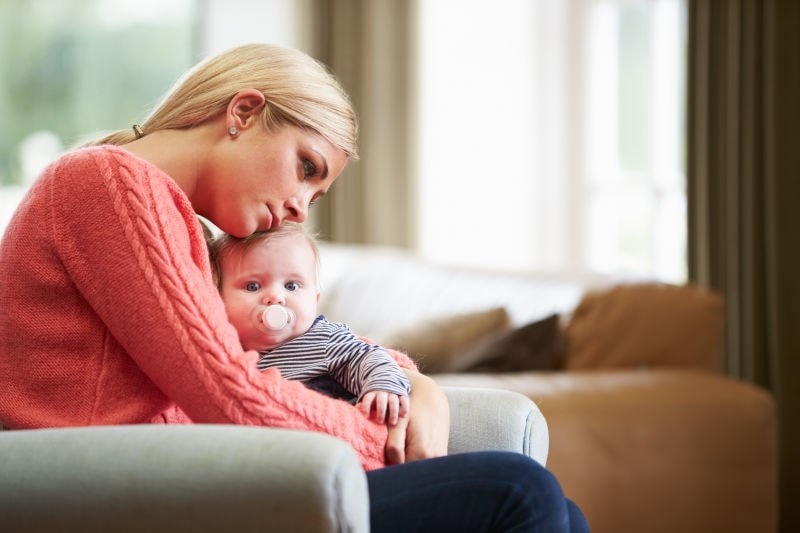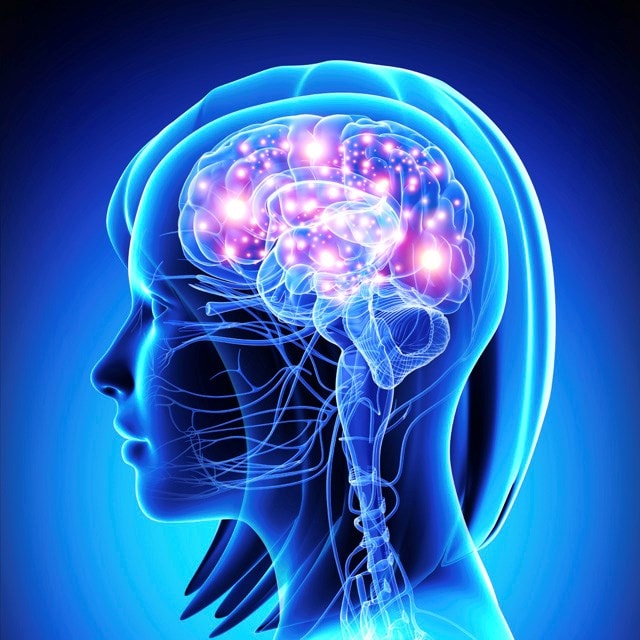Probiotics for Post-Natal Depression
We're fascinated by the ‘gut-brain connection’, by which we mean the effect the health of our microbiome can have on our mood. Research suggests that our gut bacteria may have a positive impact on our mental health, particularly during times of transition and change.
Read in this article about:

What is post-natal depression?
A few days after giving birth, it is common to experience a period of low mood known as the ‘baby blues’. This affects 30 to 80% of women, and is thought to be due to a 100 fold drop in oestrogen levels which occurs at this time and for up to 10 days after birth2. This can make the mother anxious, tearful, irrational, and irritable. These feelings generally subside after 14 days but for some women they may persist. The weeks and months following childbirth may be a time of extreme exhaustion due to lack of sleep but continuing low mood after giving birth should be discussed with a doctor, as it is possible that the mother may have developed postnatal depression.
Postnatal depression has very similar symptoms as general depression. Previous depression, current depression/anxiety, and low partner support are found to be key antenatal risk factors for postnatal depression3. It has been suggested that 33% of postnatal depression begins in pregnancy and 27% in pre-pregnancy4.
Reduced release of oxytocin (involved in breastmilk production and bonding between mother & baby) has also been associated with depression in mothers. It is understood that disruptions of the oxytocin system may be implicated in relations between breastfeeding, stress regulation, and mood. These are all affected areas during postnatal depression.
Probiotics for post-natal depression
A study1 published in EBioMedicine, revealed that taking probiotics throughout pregnancy could halve the risk of post-natal depression.
Scientists in New Zealand surveyed a group of 423 women who were between 14 and 16 weeks pregnant. The group was split, half were given the probiotic Lactobacilus rhamnosus HN001, and the other half a placebo. These were taken once a day during pregnancy and for the first six months after birth.
Even the research team were surprised by the results. Participants who had taken the probiotic returned significantly lower depression and anxiety scores, and rates of clinically relevant anxiety were halved. The implications of these findings are massive.
As many as 10-15% of women are affected by depression or anxiety during or after pregnancy. We know too that maternal and postpartum depression has a tendency to be persistent, and can affect the wellbeing of the baby. The lead author of the study, Dr Rebecca Slykerman, recognises that: "Safe and effective therapies to prevent and treat postnatal depression are needed."
She also acknowledges that many women do not always have access to psychological treatments or are understandably reluctant to take anti-depressants during pregnancy and whilst breastfeeding. It follows that probiotics, like Lactobacilus rhamnosus HN001, could provide a cost-effective, natural and simple alternative.
Probiotics are very safe to take during pregnancy and breastfeeding, but certain strains have been specifically researched in pregnant women, and of particular interest here are those strains which have been researched for the support of mental health during and after pregnancy. Lactobacillus rhamnosus HN001 has been used in gold standard clinical research and showed extremely encouraging results. In the trial of 380 women, this probiotic strain was used successfully for both postnatal depression and anxiety5.
As ever, more research is needed – these are preliminary studies. But evidence is mounting that specific strains of probiotics could support women experiencing post-natal depression.
References
- R.F. Slykerman, F. Hood, K. Wickens. J.M.D. Thompson, C. Barthow, R. Murohy, J. Kang, J. Rowden, P. Stone, J. Crane, T. Stanley, P. Abels, G. Purdie, R. Maude, E.A. Mitchell, 'Effect of Lactobacillus rhamnosus HN001 in Pregnancy on Postpartum Symptoms of Depression and Anxiety: A Randomised Double-blind Placebo-controlled Trial', EBioMedicine
- NCCMH (2018). "Antenatal and Postnatal Mental Health - The NICE guideline on cliincal management and service guidance." British Pyschological Society and The Royal College of Psychiastrists, London.
- Milgrom J et al. (2008). "Antenatal risk factors for postnatal depression: a large prospective study," Journal of Affective disorders, 108:1-2, pp. 147 – 157.
- Wisner K L et al. (2013). "Onset Timing, Thoughts of self harm, and Diagnosis in Postpartum Women with Screen positive Depression findings," JAMA Phychiatry, 70:5, pp. 490-498. doi:10.1001/jamapsychiatry.2013.87.
- Slykerman, R.F., Hood, F., Wickens, K., Thompson, J.M.D., Barthow, C., Murohy, R., Kang, J., Rowden, J., Stone, P., Crane, J., Stanley, T., Abels, P., Purdie, G., Maude, R., Mitchell, E. A. (2017). 'Effect of Lactobacillus rhamnosus HN001 in Pregnancy on Postpartum Symptoms of Depression and Anxiety: A Randomised Double-blind Placebo-controlled Trial', EBioMedicine.

